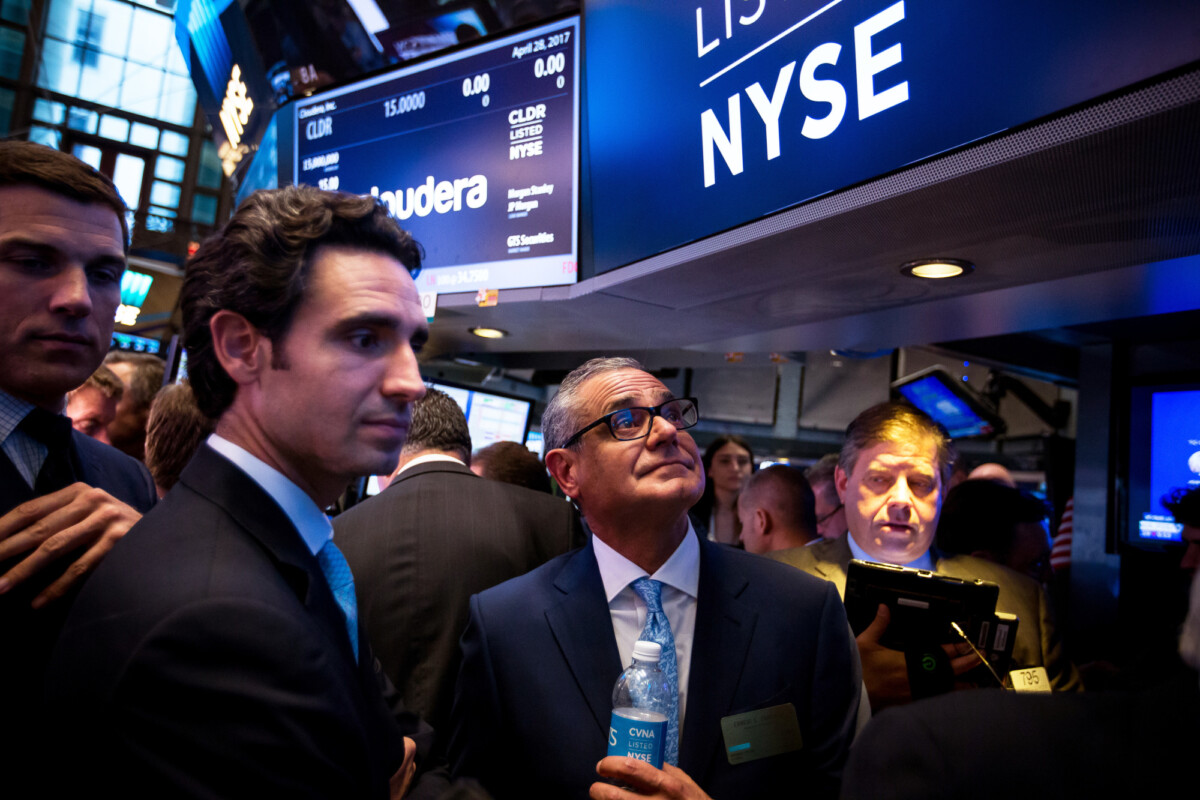Introduction
Ernie Garcia II and Ernie Garcia III, a rich father-and-son team, are facing insider trading charges, which has thrown the online used automobile marketplace Carvana into scandal. St. Paul, Minnesota, shareholders sued the Garcias in Delaware, claiming that they engaged in self-dealing at a pivotal era characterized by the COVID-19 outbreak. Claiming to have taken advantage of the economic slump, the executives reportedly purchased Carvana shares at rates well below their true value through a share offering that they orchestrated, according to the lawsuit. As this controversy develops, it calls into question Carvana’s commitment to ethical business practices and might have far-reaching consequences for the industry leader in online used car sales.
Overview Of The Carvana Lawsuit
Shareholders have launched a lawsuit in Delaware, putting the online used automobile vendor Carvana under judicial investigation. The case, which was first reported by Bloomberg Law, claims that the father-and-son team behind Carvana, Ernie Garcia II, and Ernie Garcia III, were involved in misconduct. The allegations that the Garcias participated in self-dealing during a pivotal juncture in the company’s financial history are at the heart of the lawsuit, which seeks to punish them for alleged insider trading.
The Second And Third Ernie Garcias Are Facing Allegations Of Insider Trading
The lawsuit states that the Garcias participated in insider trading while the economy was in a state of instability due to the coronavirus outbreak. The lawsuit claims that they bought Carvana shares at “bargain basement” prices by claiming that the pandemic was a valid excuse. Even though Carvana faced difficulties due to the pandemic, the stockholders claim that the Garcias knew their company was financially strong and that their acts were self-dealing.
Some of the specific events mentioned in the lawsuit include the following: the public offering of 5 million Class A shares on May 18 for $92 per share, and the sale of 13.3 million Class A shares for $45 per share on March 30 and April 0. Shareholders are claiming that the Garcias engaged in insider trading by purchasing shares at intentionally low prices, and these transactions are at the heart of their case.
Company History And Key Executives At Carvana
Since its launch in 2012, Carvana has grown into a major participant in the internet marketplace for pre-owned vehicles. Virtual vehicle tours, financing choices, and touchless home delivery are just a few ways the company stands apart when it comes to buying a car online. Carvana was co-founded by the son, Ernie Garcia III, who is also its chief executive officer.
With almost 38% of the company’s shares, Ernie Garcia II—the father—is a major player in Carvana’s ownership structure. His estimated net worth is $6.2 billion, according to Forbes. Notably, the used automobile retailer DriveTime Automotive is also owned and operated by Garcia II. This case highlights Garcia II’s past, which includes shareholder lawsuits he faced in 2001 at Drive Time Automotive, where he was accused of self-dealing. To put the purported insider trading incident in context and assess the possible effects on Carvana and its leadership, it is necessary to understand the background of the company and the important people involved.
Occurrences Of Perceived Insider Trading

Decline In Stock Value At The End Of February Due To The Pandemic
The stock value of Carvana fell sharply towards the end of February, following a pattern seen across many industries as the world’s financial markets responded to the growing effects of the COVID-19 epidemic. Market volatility and stock price changes were caused by the pandemic’s instigation of broad economic uncertainty.
Carvana, involved in both the automotive and e-commerce industries, could not escape the larger market difficulties. Some worried that the pandemic would cause supply chains to break down, consumers to alter their spending habits, and the economy as a whole to slow down. These causes caused a loss of faith from investors and a consequent drop in Carvana’s stock price.
It is possible that both general economic trends and difficulties unique to Carvana’s sector contributed to the stock price drop that occurred at the end of February. The extraordinary circumstances caused by the global health crisis forced corporations across many sectors to reevaluate their strategy and financial outlooks as the event progressed. Following this period of economic and financial instability, events like the March share offering and the insider trading accusations transpired. Executives at Carvana are facing allegations of wrongdoing stemming from a chain reaction that began with the stock price drop and has since come under legal examination.
The March 30 And April 1 Stock Offering
A share offering was a major financial step for Carvana as a response to the economic issues brought about by the COVID-19 outbreak and the previous fall in the stock value. The offering took place between March 30 and April 1, when market volatility and uncertainty were at their highest. Carvana’s news release stated that the unique aspect of the share sale was limiting it to in-house employees and “certain existing investors. People were curious about the reasoning behind the offering’s selective nature, since it restricted participation to individuals with a direct connection to the company.
The capital raising effort sought to amass $600 million through the selling of 13.3 million Class A shares priced at $45 each. The ensuing accusations of insider trading have centered on the timing of this offering, which occurred amid the prevailing economic uncertainty and the pandemic’s impact on the car industry. According to the pension fund shareholders’ lawsuit, insiders took advantage of the stock’s perceived undervaluation while Carvana’s shares was trading at a “artificial trough” during this share sale.
The lawsuit asserts that Ernie Garcia II and Ernie Garcia III, along with other company executives, were allegedly in the know regarding Carvana’s real performance prior to its public disclosure, and they used this information to purchase shares at what the lawsuit calls “bargain-basement” prices. The growing claims against key executives at Carvana include these occurrences, which are essential to understanding the bigger picture.
First Quarter Results Announcement: May 6th
Important news about Carvana’s first-quarter earnings will be announced on May 6. The firm announces strong revenue increase of 45% year over year, even though it posted a larger-than-expected loss of $183 million. Also, the good news for Carvana’s future is that the company is announcing plans to expand its “soon-as-next-day touchless home delivery” service.
A complicated story emerges from the juxtaposition of a large loss and robust revenue growth. According to the complaint, the Garcias and other insiders were able to profit from the situation because they had access to information that the general public did not. Subsequently, Carvana’s stock price surged, with analysts attributing the increase to the expansion of its touchless home delivery service. This new information is important to the allegations of insider trading, as stated in the lawsuit.
The Garcias’ Net Worth Growing As Stock Prices Soar
There was a dramatic increase in Carvana’s stock price after the March and April share sale. Following the May 6 presentation of the company’s first-quarter earnings, this increase became even more noticeable. Revenue for Carvana increased by 45% year over year, even though the company posted a loss of $183 million, which was more than projected. The business announced the addition of its “soon-as-next-day touchless home delivery” service to 100 additional cities across 25 states.
The stock price of Carvana rose sharply in reaction to these statements, reversing the previous decline. It is worth mentioning that the stock price spike occurred at the same time that the net worth of the Garcias, the father-and-son team running Carvana, increased significantly. The favorable market reception of Carvana’s strategic measures led to a $2 billion increase in their combined net worth within a week, according to Forbes. This highlights the financial rewards.
The 5,000,000 Class A Shares Announced For Public Sale On May 18th
Carvana announced a critical financial step on May 18, revealing the public offering of 5 million Class A shares. The company’s subsequent effort to attract outside investors to fund its operations was this public offering, which it priced at $92 per share. Financial mistakes made by Carvana were even more scrutinized because of the timing of this offering, which followed the stock price rebound and the significant increase in the Garcias’ net worth. Carvana’s public offering, intended to acquire capital for operational and expansionary purposes, has cast doubt on the company’s financial strategy and the reasoning behind the timing of such offerings.
Among the main points of the pension fund shareholders’ case against Carvana’s executives was the chain of events that began with the stock price drop, continued through the insider-focused share offering, positive market reaction, and public offering. Allegedly, the Garcia family reaped financial and other benefits as a consequence of these acts, according to the lawsuits.
The Lawsuit’s Claims

The “Artificial Trough” In Carvana Stock During The Initial Public Offering
The lawsuit states that Carvana’s stock was trading at a “artificial trough” during the first share sale in late March. This indicates that the stock price was not reflecting the actual worth of the company back then. According to the plaintiffs, insiders like Ernie Garcia II and Ernie Garcia III snagged shares at what they called bargain cellar pricing. Insiders may have intentionally selected the date of the share offering for their own gain, casting doubt on the integrity of the stock transactions.
Supposedly Exploiting Insider Knowledge Of Real Company Performance
The Garcias’ alleged use of inside information about Carvana’s performance prior to the formal announcement of quarterly results is another important allegation in the complaint. According to the complaint, they had an unfair advantage since they could use this knowledge to make educated stock purchases before the general public knew the company’s real financial situation. If true, insiders trading based on non-public material information would violate trust and regulatory duties, as it is typically forbidden.
Claims Of Financial Misappropriation And Self-Deal
The lawsuit alleges that the Garcias engaged in self-dealing, prioritizing their own wealth over that of Carvana and its stockholders. According to the lawsuit, the company accuses the insiders of stealing money by purchasing shares at a “bargain-basement price,” and the money could have been acquired at a higher valuation.
This charge calls into doubt the validity of the share transactions and questions the extent to which the Garcias may have taken advantage of their positions inside the corporation. If proven true, these claims might land the company and the individuals concerned in hot water with the law and the bank.
Letters And Remarks From Businesses
Carvana Has Not Reacted To Forbes’ Request For Comment
Carvana has remained noticeably silent in reaction to Forbes’ demand for comment, notwithstanding the seriousness of the accusations and the possible damage to the company’s reputation. i has so far refused to issue a formal statement in response to the insider trading allegations leveled against Ernie Garcia III, founder and CEO, and his father, Ernie Garcia II. This has left the public and investors in a condition of confusion. A strategic legal stance or worries about possible confessions of guilt are two possible explanations for this quiet. Investors and industry analysts are left to speculate about the company’s position and strategy for dealing with the legal issues it is currently facing.
Ernie Garcia II’s Past Self-Deal Claims
Accusers have previously leveled self-dealing allegations against Ernie Garcia II in a case involving Carvana and its management. When he ran used-car dealership Drive Time Automotive (then called Ugly Duckling) in 2001, shareholder litigation tarnished his reputation and business practices. Allegedly, Garcia II used his position to enrich himself at the expense of Ugly Duckling, according to these lawsuits.
Even though the legal lawsuits were consolidated and settled, Garcia II’s company history still includes the claims. The present insider trading crisis has already complicated matters, and the leadership’s moral fiber is cast into doubt by the repeated claims of self-dealing. In order to determine the veracity of the latest allegations and how they may affect Carvana’s future, investors and stakeholders may be closely watching this pattern of activity.
Carvana’s History And Important People
Carvana’s Role In The World Of Online Pre-Owned Vehicle Sales
Since its launch in 2012, Carvana has transformed the way people buy cars online by becoming a dominant participant in the used automobile marketplace. Customers can search for, research, and buy used automobiles online through the company’s digital platform, which is what sets it apart. Adapting to changing customer preferences, Carvana has become well-known for its innovative strategy, which incorporates a virtual tour of every vehicle in 360 degrees, a seven-day return policy, and choices for contactless delivery. The increasing market presence and noteworthy spike in stock value since Carvana became a publicly traded company in 2017 are clear indicators of the development and success that have resulted from its creative business model.
Ernie Garcia II’s Net Worth And Ownership Situation
An important character in Carvana’s history, Ernie Garcia II, holds a sizable 38% interest in the firm and is thus its biggest shareholder. Owning and operating DriveTime Automotive, a used automobile retailer that went through a major shift from its original name as Ugly Duckling, further expands his reach outside Carvana. Forbes estimates Garcia II’s net worth at $6.2 billion, which puts him at the center of the alleged insider trading incident and highlights his substantial financial interest in Carvana.
As Carvana’s Co-Founder And Chief Executive Officer, Ernie Garcia III
The current chief executive officer (CEO) and co-founder of Carvana, Ernie Garcia III is 38 years old and is the son of Ernie Garcia II. According to reports, Garcia III is worth $2.6 billion. He was instrumental in guiding Carvana’s transition from a subsidiary of DriveTime Automotive to a public company in 2017 and setting its strategic direction.
Under Garcia III’s leadership as CEO, Carvana has grown and adapted to changing customer tastes, particularly after the COVID-19 outbreak. The leadership of Carvana is under examination due to insider trading claims against him and his father. This has raised issues about the company’s ethical standards and could impact its continued success in the online used automobile market.
Conclusion
The Carvana insider trading affair highlights the difficulties and dangers that can arise when high finance, executive decision-making, and market dynamics come together. Legal processes are ongoing, and it is unclear what effect this will have on Carvana’s credibility and position in the online used automobile market. Openness, good corporate governance, and ethical behavior may sustain the trust between shareholders and business leadership, if the example is any indication. Other businesses will see Carvana’s reputation and their perception of the company and its leaders affected by the fallout from this controversy.
Frequently Asked Questions
1. How Serious Are The Claims That Officials At Carvana Engaged In Insider Trading?
During the COVID-19 outbreak, Ernie Garcia II and Ernie Garcia III participated in a share offering, as stated by the lawsuit. They allegedly took advantage of the undervaluation of Carvana’s stock to enrich themselves while the company suffered.
2. What Happened During The Pandemic That Would Lead To The Suspected Insider Trading Scheme?
Allegedly, the Garcias utilized the pandemic’s impact on the economy to rationalize an exclusive share offering to close associates and existing investors. The lawsuit asserts that they were able to acquire Carvana shares at rates below their true market value through this offering.
3. How Did The Stock Price Of Carvana And The Garcias’ Wealth Change As A Result Of The Alleged Insider Trading?
The stock price of the corporation fell, but then it surged following some good news announcements in early May. The aggregate net worth of the Garcias increased significantly, by an estimated $2 billion, according to Forbes, coinciding with this boom.
4. What Was Carvana’s Reaction To The Insider Trading Claims?
As on the most recent information that is currently accessible, Carvana has chosen not to publicly address the charges. Questions regarding the company’s position on the issue have been raised by the absence of an official response, which has added to the intrigue surrounding the case.
5. When Looking At The Corporate Sector As A Whole, What Does The Carvana Insider Trading Incident Mean?
Ethical behavior and openness in business transactions are emphasized by the scandal. Executive decisions made during economic instability can have a significant impact on a company’s reputation and shareholder trust, which is something that should be carefully considered.


